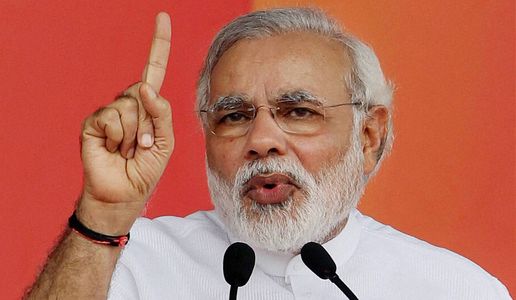Miller in Foreign Affairs on India’s Authoritarian Streak
Manjari Chatterjee Miller, Associate Professor of International Relations at the Frederick S. Pardee School of Global Studies at Boston University, published a recent journal article examining the growing divide in India along ideological and religious lines under Prime Minister Narendra Modi.
Miller’s article, entitled “India’s Authoritarian Streak: What Modi Risks With His Divisive Populism,” was published in Foreign Affairs on May 30, 2018.
From the text of the article:
Since the election of Narendra Modi as prime minister in 2014, India has grown deeply divided along ideological and religious lines. Under his watch, Modi’s ruling Hindu nationalist Bharatiya Janata Party (BJP) has issued populist policies that harm religious minorities and dissenters, and its officials have largely remained silent about violence against such groups. In some instances, they have even gone so far as to laud such behavior.
In August 2015, Malleshappa Kalburgi, an Indian scholar who criticized Hindu idolatry, was murdered by Hindu right-wing groups. His death was later celebrated on Twitter by activists from Bajrang Dal, another right-wing Hindu group whose members are strong supporters of Modi. Later that year, a 50-year-old Muslim man, Mohammad Akhlaq, was killed by a Hindu mob for allegedly committing the “sin” of eating beef. After the incident, Mahesh Sharma, a minister in the Modi government, insisted that the murder of Akhlaq was merely “the result of a misunderstanding.” In 2017, after the murder of the journalist Gauri Lankesh, a prominent critic of Hindu nationalist groups, the BJP government accused opposition leaders of trying to “make political capital” out of the situation. In all of these cases, the prime minister failed to issue a statement of condolence or condemnation, leading the well-known Indian actor Prakash Raj to condemn Modi’s silence as “chilling.” This year, after the horrific rape of an eight-year-old Muslim girl by Hindu men who were determined to drive her community from their village, Modi only issued a condemnation after facing mounting pressure from opposition groups.
What is more, the government and Hindu nationalist activists now routinely suppress dissent and label protesters as “anti-national.” As a prominent example, in 2016, Kanhaiya Kumar, the president of the student union at Jawaharlal Nehru University in New Delhi, was arrested for “sedition” and accused of being “anti-national” after he and his fellow students engaged in a peaceful (albeit controversial) protest against the government’s 2013 execution of Afzal Guru, a terrorist trained in Pakistan who helped carry out.
Manjari Chatterjee Miller works on foreign policy and security issues in international relations with a focus on South and East Asia. She specializes in the foreign policy of rising powers India and China. Her book, Wronged by Empire: Post-Imperial Ideology and Foreign Policy in India and China, argues that the bitter history of colonialism affects the foreign policy behavior of India and China even today. She is interested in ideational influences on foreign policy and conceptions of state security. She is currently working on rising powers and the domestic ideational frameworks that explain their changing status.
